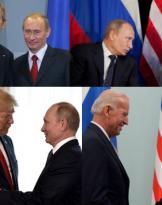As everyone knows today, it is not possible to conceive of armed conflict as of the Middle Ages. If in fact the Hobbesian phrase Homo homini lupus once did justice to a geopolitical approach that was the majority in the lands of the globe, today, with the prevailing of brocardo ubi societas ibi jus, even wars are strictly regulated and a violation of the rules could entail very serious internal and international penal responsibilities.
Is it always like this?
The point, to be able to think of addressing a war attack on the terrorism of the Islamic State (ISIS), is to define and research the elements that allow an armed attack, in compliance with the international rules of armed conflict and international public law.
The state has in fact a restricted freedom in conducting hostilities during armed conflicts, and this is arranged to limit the negative effects that war generally has, especially on civilians. The war legislation of the Italian state dates back to the 1938 and is contained in the Royal Decree 8 July 1938, n. 1415. Today, the application of the law of war is ordered by the President of the Republic during international armed conflicts, but can also be applied - outside such situations - if it is in the interest of the State. At the same time - or with a separate document - the Constitution, in Articles 78 and 87, provides that a state of war can be decreed for the purposes of the application of the military criminal law of war. Most of the provisions of Title II of this regulatory asset trace the contents of the Hague conventions of 1899 and, by virtue of the provisions of the art. 10 of the Italian Constitution, are binding as general international law. Today in large part these regulatory constructs are outdated but the hard core remains current.
.jpg) Article. 25 of the war law identifies the definition of the intervening subjects in a war action. The legitimate belligerents are defined as the regular armed forces including the militias and voluntary bodies that constitute or are part of it. They are subordinate to a chief-manager, they wear a uniform or they are equipped with a fixed badge common to all members and recognizable at a distance, they openly bear arms and do not hide them and respect the customs and laws of war. On the other hand, the illegitimate fighters are defined as the residual part of the actors, that is, those who do not belong to the formations considered legitimate and who perform hostile acts against the Italian armed forces thus becoming punished according to the art. 167 of the military war criminal code (cpmg). The use of military means, therefore the right to participate in hostilities, rests solely with those who can be considered legitimate belligerents.
Article. 25 of the war law identifies the definition of the intervening subjects in a war action. The legitimate belligerents are defined as the regular armed forces including the militias and voluntary bodies that constitute or are part of it. They are subordinate to a chief-manager, they wear a uniform or they are equipped with a fixed badge common to all members and recognizable at a distance, they openly bear arms and do not hide them and respect the customs and laws of war. On the other hand, the illegitimate fighters are defined as the residual part of the actors, that is, those who do not belong to the formations considered legitimate and who perform hostile acts against the Italian armed forces thus becoming punished according to the art. 167 of the military war criminal code (cpmg). The use of military means, therefore the right to participate in hostilities, rests solely with those who can be considered legitimate belligerents.
Having affirmed this necessary introductory hatch, it is now necessary to examine the possibilities that international law offers to the development of war attacks. The cornerstone of the discipline stems from the general desire to make recourse to violence residual. There is however to specify how the use of this, in war, is always lawful what time it is within the limits imposed by military necessities, never having to cause unnecessary suffering, damage, unnecessary destruction, kill or injure an enemy when this has surrendered sine condictiones. An example, according to what has just been said, we find it in a norm concerning the bombardment of inhabited centers and buildings that requires to always take into account the damage to which the civil population is exposed, by prohibiting the action that has the mere purpose to hit it, or damage or destroy assets that do not manifest a military interest.
The causes of justification of ordinary law and martial law apply to what are commonly called "war crimes". To this purpose it is necessary to send what is a cause of justification. It may define the situation in which, upon the occurrence of certain conditions, the fulfillment of an act that would normally be a crime is not affected by the sanctioning rules of the legal system. The antigiuridicity of the fact is therefore excluded because the justification lies in the lack of social damage caused by the act itself. The first of all is the legitimate defense, provided for by art. 42 of the Military Peace Penal Code (CPMP) - being in fact provided for in a specific form in the military code does not apply the civil simile of the art. 52 cp The formulation requires that a crime is not punishable if committed by a subject who was forced, by necessity to reject from himself or others a current and unjust violence, to put him in being provided there is a proportionality between attack and defense.
The military penal order sees as violence the murder - in all its forms including the attempt - the beatings, the injuries and any other attempt to offend with the weapons (art. 43 cpmp). The connotation is therefore specific and differs from the construct of the art. 52 cp not being contemplated the hypothesis of the danger: the violence should therefore be in place excluding the applicability of the discriminatory to the threatening attitude. Indeed the Constitutional Court, in the 11 sentence June 1987, n. 225, specified how the art. 42 cpmp does not exclude the legitimacy of a reaction to an action that is being verified referring to the dangerous situations deriving from the attempted offense. This jurisprudential approach therefore allows the non-punishment of the soldier who makes necessary and proportionate use of force to react to an attack that is looming as imminent. On the subject of violence, the aforementioned art. 43 cpmp speaks of "the need to reject", thus allowing the reaction to be directed also towards an aggressive act that has not yet been directly transferred to the military but which nonetheless expresses a considerable offensive charge. Related to it is the putative exoneration: in this case the danger does not exist but is supposed by the agent on the basis of an excusable error in the appreciation of the factual circumstances. It is an evaluation that must move casu casu and concretely.
Surely, in any case, the high number of suicide attacks and the use of guerrilla tactics by the adversary, express a threat that, identified in concrete form, allows the transition to lethal force. The last cause of justification that we have to analyze in order to have a well-defined picture in the current social context is that referred to in art. 44 cpmp better known as the state of necessity by virtue of which the person who commits a differently constituting crime is not punished in case he was forced by the necessity to prevent facts that would compromise security. This rule extends to an open core of crimes, embracing all the hypotheses of concrete and effective danger.
In general, therefore, the use of force by Italian personnel is allowed to defend themselves or others, in the case of defensive rescue, or in case of attacks or threats of imminent attacks and against those who are about to make an act capable of endangering the life or physical integrity of a human being.
 Exhausted all the regulatory framework applicable today to the operations of war, all that remains is to draw the necessary conclusions and understand what the Italian military can or can not do in the current geopolitical context of Libya and the advance of Islamic terrorism.
Exhausted all the regulatory framework applicable today to the operations of war, all that remains is to draw the necessary conclusions and understand what the Italian military can or can not do in the current geopolitical context of Libya and the advance of Islamic terrorism.
In order to carry out a military operation, first of all there must be a very specific reason which I place with a significant degree of objectivity - drawing evidence from the world scenario - in the mission of definitive dismantling of Islamic terrorism. If today it is true that the door is opened to us in Libya, it is necessary to define the reason why Italy or a coalition of third states can enter and fight in a territory where it does not exercise sovereignty. While it is legally correct to run to the aid of a state that burdens in a condition of significant need, we can rise to the status of a failed state in which Libya is today. This country, in fact, to date has lost physical control of some of its territorial areas caused by the absence of a strong and effective central power; crime is widespread and mass phenomena of movement of refugees are developing on a daily basis. If there is no real definition of what a failed state is, the thought of Max Weber runs in support, speaking of the successful state, he defined it as one capable of maintaining the monopoly of the legitimate use of physical force. When this power is broken or questioned through the presence of terrorism, the very existence of the state becomes doubtful and the state becomes bankrupt. Libya is experiencing this situation of collapse and does not appear capable of facing, in absolutist and definitive terms, the danger represented by the Islamic terrorism of Isis and al-Qaeda (organizations that are in conflict with each other on the issue of the Caliphate but who are pursuing a common goal recognized in the destruction of Western strongholds, as I already had occasion to say in an intervention on the occasion of the terrorist action to the weekly Charlie Hebdo).
Today a military attack on the part not only of Italy but of the European countries, Egypt and Russia - which are the most delicate objectives in view of the predominance of fundamentalists - is to be considered indispensable, even more than legitimized by the legitimate condition defense, there is a real danger now close to becoming reality, and of a state of necessity, being at stake the survival and our freedoms so hard conquered. The subjects who are acting in the regime of terror apply a concept of Islam very different from that written in the Qur'an, a convenientistic distortion in the light of economic profits that these groups try to achieve with their war of expansion (clarification was the intervention of a few days ago of Queen Rania of Jordan). If the UN solution wants to be diplomatic, once again it will have to add a resounding failure to its already solid medal collection. I wonder where is the diplomatic corps of Isis or any criminal association that makes its goal mass destruction. The only possibility that today we have to stop the rampant advance of these real crazy is to curb the internal situation, define it, and in the meantime move on the foreign front.

Today the war is already triggered but the comforts do not make us still understand what the real situation is. Every boat that arrives in Italy can bring with it - according to agency sources - at least ten subjects affiliated to existing terrorist cells.
The only solution that I consider suitable is to move on two fronts. First of all, it is necessary to put a naval blockade and no longer allow anyone to enter as a refugee in European lands by virtue of the actual national danger that emerges in the impossibility of defining with certainty if the subjects are not, beyond reasonable doubt, belonging to terrorist cells. We must then carefully map all the individuals present in our States - not just immigrants - and exclude any possible connection with IS cells and, in the case of doubt, proceed with the safety of the subjects by possible communications with other affiliates. Together with all this it is necessary to move on the foreign ground, in Libya but not only, to ensure a dignified life for the honest inhabitants of those lands and to eradicate terrorism at its root.
Africa has been experiencing a stressful situation for years. If today we have reached the point where we are, it is because we have never had feelings of respect towards the Black Continent which, being quite rich in raw materials, has been subject to massive attacks by al-Qaeda and Isis fundamentalists for some time. that in doing so they increase their assets. Today it is impossible to eradicate terrorism. Of course, the path is long and difficult, especially if we think that we have never stopped supplying the sources of these subjects, letting them operate undisturbed for many years and providing them - directly or not - with weapons. The first point will be to secure our territories, the second find the operational bases of these organizations not being content to stem the danger because these subjects expand like wildfire.
Many believe it is enough to make half the effort. Yes, a short jump is easier than a long one, but no one who wants to cross a wide ditch will cross only half of it. It will then be essential to change foreign policy by starting to develop a particular focus on Africa and not make it a forgotten land anymore because evil lurks and expands where it can act undisturbed.
Nicolò Giordana
(photo: Navy Seals / web / difesa.it / MM)












